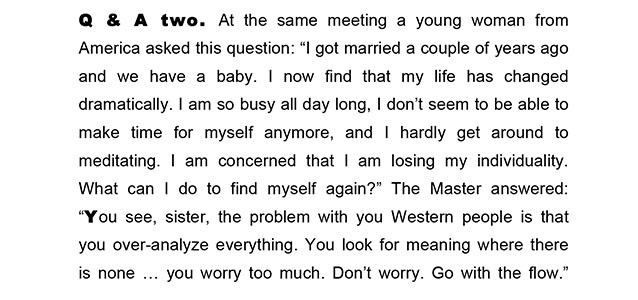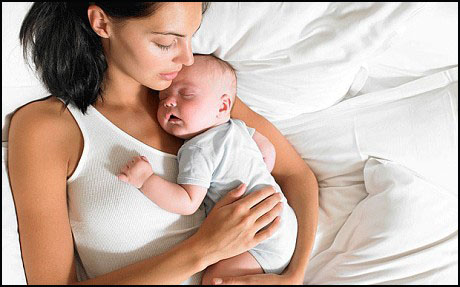917 Mother and baby
I have four daughters (three by marriage) with
babies … all up I have six grandsons between three months and six years. All four young women have suffered immensely from sleep deprivation, tiredness and post
natal depression.
This is a fate suffered by many women in
the West, who have to look after their new-borns by themselves; whereas others,
ie. African, Indian, Chinese, Korean and Arabic women, may benefit from
post-natal support systems.
The result for Western women is stress and anxiety ... and it is often not easy - though crucial - to follow the advice "to go with the flow and not over-analyze your situation". I have an essay Q & A on the subject in my book en.light.en.ment ...

One way to avoid the pitfalls of overwhelming demands on a young mother is to follow in the footsteps of these lucky women, who have been able to rest as they spend the first six weeks after childbirth … in bed with
their babies!

Why women are spending the first weeks
after birth
lying flat in bed
by Kate Aubusson, SMH
Himali Nayak spent the first six weeks of
motherhood lying flat in her bed as she bonded with her son, Hemir.
The home she shares with her husband in
Westmead was worlds away from her upbringing in Gujarat, west India, but the
31-year-old was determined to follow the traditional practice of bed rest after
birth.
Ms Nayak’s mother and father travelled
from India and moved into her two-bedroom apartment to care for the new mother
and baby and share all the household chores with her husband so that she could
observe the cultural custom.
“My mother would not allow me to do
anything in the kitchen or allow me to lift anything,” said Mrs Nayak, who
moved to Australia as a newlywed in 2011.
“We all took care of Hemir. If I was
alone it would be very hard [to do] everything ... I cannot put into words how
grateful I am to all of them.”
Bed rest after birth is a common cultural
custom among African, Indian, Chinese, Korean and Arabic women.